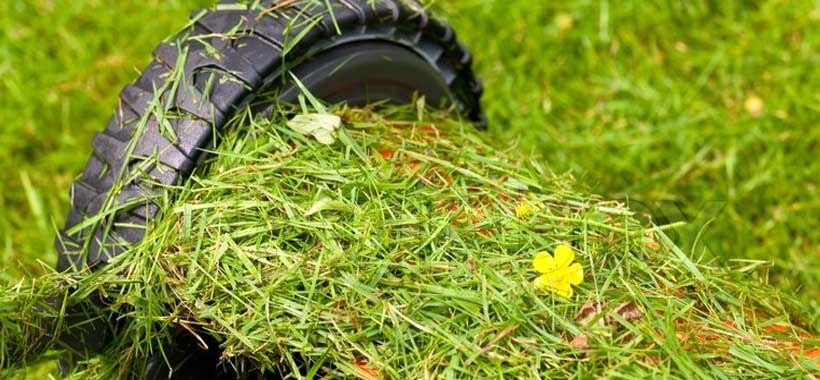Working the yard is fun and safe to most people. However, asthmatics or people allergic to pollen can have a hard time especially after mowing grass without wearing a good breathing mask.
Can you be allergic to fresh cut grass?
Mostly during spring when the high grass pollen is blowing over large swathes of land, certain people get headaches after cutting grass or hay fever. Most get their reaction from either inhaling the dust or when they come in contact with their eyes. Cut grass can also result in allergies especially when long and pollen-laden.
Another particular group of people end up having reactions when they come into contact with grass during mowing, dethatching or just a day out in the lawn. Small spikes which wade off other insects in grass forms causes abrasions in the skin resulting in hives or rashes.
What kind of grass causes allergies?
There is a consensus that grass can cause allergies. A closer examination reveals certain times of the year like spring or types of grass are responsible for body reactions. Long grass varieties that produce a lot of pollen have the highest likelihood of causing allergies. Other shorter grasses equally do the same especially when they have spiky surfaces.
Several grass species have been documented to be responsible for allergies. They include Bermuda/couch, Johnson, Bahia, canary, cocksfoot, June/Kentucky blue, rye and Timothy grasses. Most of these grass species are distributed all over the globe. Chances of you coming across them are high. These grasses have a general characteristic of producing a lot of pollen or have tiny spikes.

What are the symptoms of being allergic to grass?
Symptoms vary depending on individual and allergen. Some general signs accompany allergies like fatigue, running eyes or nose. You may also experience coughing after mowing.
Doctors reveal that there is a nexus between the allergen causing the reaction, point of entry or contact with the body and resulting reactions. Pollen can cause a reaction when either inhaled or when in connection with the eyes. Cut sharp grass edges and microspikes abrasively scar the skin causing contact dermatitis.
Inhaled allergens often result in nasal congestion, sneezing, coughing, watery eyes and in extreme case difficulty breathing. Irritation of the nasal cavity that brings about inflammation, dehydration or constriction of the passages. The throat is also affected and usually dries up or gets irritated.
If pollen gets in contact with your eyes, itchiness and redness may occur. Teary eyes and headache may accompany the other reactions.
Another route of entry of allergens is through surface contact. Hives, rashes and swellings are typically associated with cut grass touching on an allergic person’s skin.
How do you treat grass allergies?
The intensity of allergies differs from person to person. Mild allergies can easily be managed at home with a combination of home remedies and over the counter drugs. Extreme allergies may require emergency medical help like grass pollen asthma.
Most of the over the counter drugs prescribed usually relieve mild allergy symptoms. Nasal allergic reactions are mitigated by using saline nasal sprays or rinses. Owing to the dehydration of the nasal cavity rinses come in handy hydrating in relieving your symptoms.
Alternatively, when you get an inflammatory reaction, use steroid sprays like Flonase. It is recommended that you seek doctor’s approval before using steroids owing to their side effects.
In case your allergy is as a result of surface contact with grass, washing the surface is essential. A dose of oral antihistamines reduces your body’s overreactions like swellings, hives and rashes.
How to protect yourself from grass allergies
Having being diagnosed with grass allergy by a doctor, it is essential to reduce your exposure to the allergens. Investing in an allergy mask or dust mask and goggles can minimize eye contact and pollen inhalation. For individuals with contact dermatitis, ensuring you wear protective clothing when mowing your lawn would be sufficient. Also, ensure that your lawn mower blades are sharp to reduce grass shredding hence the amount of finely shredded debris your mower drakes into the air.
Additional measures like having an air purifying system, closing windows especially during spring are also necessary.
There you have it. If you are considering mowing your grass and is allergic, here are a few facts about grass allergies that you need to know.
